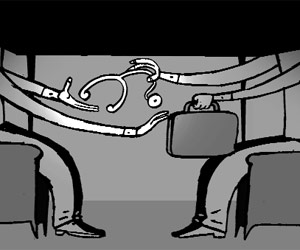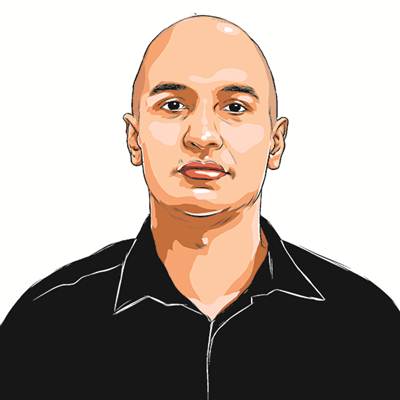Opinion MCI,heal thyself
What the medical council scandal tells us about the skews in our health delivery

At 7 am last Saturday,the doctor seeing destitute patients next to me in Chawri Bazar in old Delhi,has been up for nearly three hours. Dr Ranas patients love him because he listens to them and ensures their care over many visits. He works in this mobile clinic as a primary care physician to supplement his income of less than Rs 20,000 per month as an assistant in a bazar clinic and commutes nearly two hours each way from his modest apartment. He rarely sees his three children.
In contrast,the president of the Medical Council of India,a specialist in urology,has been arrested on allegations that he took a bribe worth crores of rupees to recognise a medical college. Why Dr Desais position as the head of an accreditation guild is worth what is alleged,and why Dr Ranas is not,tells us a lot about our health system and how we might reform it.
India does not have enough healthcare providers; the ones we do have are resistant to working in primary care for the underserved. The blueprint of our public health system,the Bhore Committee report of 1946,directed each doctor in a rural primary health centre to take care of more than 3,000 people while more doctors were being trained. Today,India has about one physician per 1,700 people still less than the WHO recommendation of one per 1,000 people and much less than Cuba,which has about one per 150 people. Moreover,few of our doctors live in rural areas: given the huge unmet demand everywhere,trained allopathic physicians usually prefer to live and work as specialists in cities. Solving this dilemma demands at least two approaches increasing the number of physicians and training them so that their skills meet our needs.
The Indian state has tried to increase the number of physicians many times over the past decades. Alternative courses such as the one that trained Dr Rana were created,but physicians and their guilds have resisted this in the courts,ostensibly for fear of the dilution of quality of training (as have comparable foreign bodies like the American Medical Association and Venezuelas Federacion Medico Venezuelana). Overcoming initial reluctance,the MCI has recently accredited many new medical colleges (such as the one that allegedly bribed Dr Desai). A new,truncated,rural training programme announced this year by the health ministry also offers some hope: if we can adequately train personnel,we might eventually solve our problem of numbers.
The harder question is how to get these new graduates to do what is best for us. The vast majority of Indias healthcare is delivered privately. Being a post-graduate (PG) specialist allows private physicians to charge large sums to our patients,who have meagre information and thus little choice but to pay out-of-pocket for medical procedures. In todays booming healthcare market,specialist medical education is great business: post-graduate seats in private medical colleges can cost Rs 2 crore each. Clearly,the accreditation of a new college by the president of the MCI carries great value for those who profit from those seats.
And yet,this focus on training specialists is misdirected. Around the world,the health systems that best enhance the lives of their populations (at reasonable cost) spend the vast majority of their resources on primary care. The UK,for instance,has chosen to enhance healthcare by paying primary care providers more,while the government of Venezuela has invited Cuban doctors in to create huge new cadres of rurally based physicians. India too does well by training only one out of every three physicians as a PG specialist,a ratio consistent with a good,primary care-based system. But we need to both create many more healthcare providers and spend resources so that primary care for the rural and urban underserved (such as those taken care of by Dr Rana) is an attractive alternative to specialisation in cities.
The MCI case may appear to be only about the alleged corruption of an individual,but it demonstrates an easily overlooked truth: across the world,when medical accreditation bodies are constituted only of eminent physicians,they fail to reflect the needs of civil society. The state gives physicians special licenses to cut people open and to prescribe dangerous drugs; in reforming the MCI our government should ensure that lay representatives of the people,our patients,have a say in deciding who gets to operate those licences. Medical accreditation bodies in countries like the UK and the US now have statutory,non-medical members whose duty is to ensure that government and civil societys interests are well represented so should ours. Our system needs many more people like Dr Rana,trained in primary care who,in conjunction with proportionately-increased,well-trained specialists will find it worth their while to take care of all of us,wherever we live.


